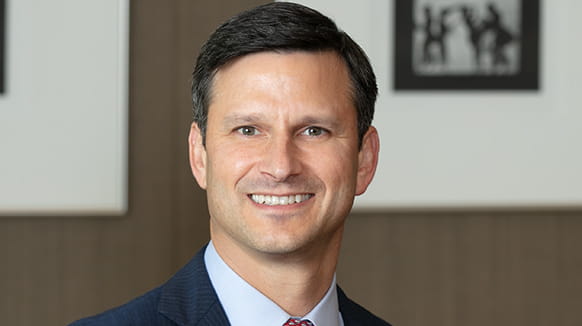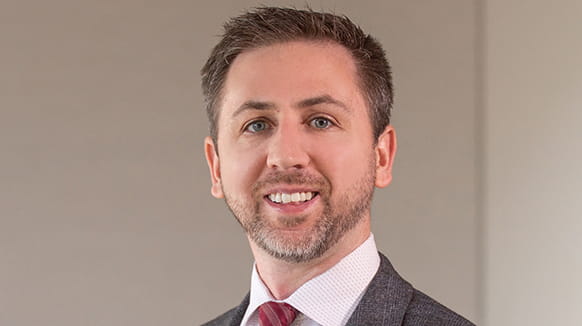The Supreme Court released two unanimous copyright decisions this week—one clarifying when a copyright claimant may file suit and the other defining the limits of “full costs” awards under Section 505 of the Copyright Act. Both have important implications for copyright litigants going forward. In the first case, the Court resolved a long-standing circuit-split by holding that copyright claimants must obtain a registration certificate from the Copyright Office before proceeding with suit—a process which can take several months. In the second, the Court held that the costs recoverable to prevailing copyright claimants are limited to the standard costs recoverable to prevailing parties in federal court litigation, and do not include additional costs such as expert and e-discovery fees.
Fourth Estate Public Benefit Corp. v. Wall-Street.com, LLC et al., Case No. 17-571, 586 U.S. ___ (Mar. 4, 2019)
In Fourth Estate Pub. Benefit Corp. v. Wall-Street.com, LLC, the Supreme Court settled a split among U.S. Courts of Appeals regarding whether a copyright owner can sue for infringement before the Copyright Office grants registration. The Copyright Act of 1976 gives copyright protection to “original works of authorship fixed in any tangible medium of expression,” and rights in such works attach as soon as the works are created. However, 17 U.S.C. §411(a) conditions that “no civil action for infringement of the copyright in any United States work shall be instituted until…registration of the copyright claim has been made in accordance with this title.” The parties in Fourth Estate disputed the meaning of “registration” in §411(a).
Fourth Estate Public Benefit Corporation (“Fourth Estate”), a news organization, sued Wall-Street.com and its owner (“Wall-Street”) for copyright infringement after Wall-Street failed to remove Fourth Estate’s news articles from its website despite having canceled the parties’ license agreement. Before filing suit, Fourth Estate had filed copyright applications for the news articles, but the Copyright Office had not yet granted or refused registration.
The district court dismissed the complaint because the Copyright Office had not yet processed Fourth Estate’s applications at the time the suit was commenced, and the Court of Appeals for the Eleventh Circuit affirmed the dismissal.
Fourth Estate appealed, arguing that “registration” for the purposes of §411(a) occurs when a copyright owner submits the application, materials, and payment to the Copyright Office, a theory known as the “application approach.” Wall-Street, in line with a previous holding by the Eleventh Circuit, promoted the “registration approach,” arguing that §411(a)’s registration requirement is satisfied only when the Copyright Office grants registration.
The Supreme Court unanimously agreed with Wall-Street and the lower courts, holding that “registration” in §411(a) “refers to the Copyright Office’s act of granting registration, not to the copyright claimant’s request for registration.” In other words, “registration occurs, and a copyright claimant may commence an infringement suit, when the Copyright Office registers a copyright.” The statute provides several exceptions to this rule. For example, owners of material susceptible to predistribution infringement, such as movies or musical compositions, can apply for preregistration, a limited review of the application after which the copyright owner may commence an infringement suit. The statute also provides an exception for live broadcasts, where a copyright owner may sue for infringement before obtaining a registration. In addition, copyright owners may institute an infringement suit after the Copyright Office refuses registration. These exceptions, the Court reasoned, would be “superfluous” if a copyright application alone satisfied the requirements of §411(a).
The Supreme Court also assuaged Fourth Estate’s concerns that the three-year statute of limitations could expire before the Copyright Office reviews an application, stating that the seven-month average processing time for copyright applications “leaves ample time to sue after the Register’s decision, even for infringement that began before submission of an application.”
Thus, Fourth Estate clarifies that, save for the exceptions noted above, a copyright owner may bring an infringement suit only after the Copyright Office grants registration. However, because a suit may cover infringement that occurs before and after registration, copyright owners can still protect rights granted before receiving an official grant of protection.
The Court’s decision is important for copyright owners who may need to assert a claim quickly, but do not have a registration certificate. Because it can take the Copyright Office in excess of seven months to grant on deny an application, Copyright owners who have not yet registered their works must either pay a special handling fee of $800 per work to speed up the registration process, or take the risk of waiting to assert their claims until the Copyright Office has acted. This can, in certain circumstances, result in the expiration of the statute of limitations, the disappearance of infringing goods, or the failure to enjoin an act of infringement. It is therefore important that copyright claimants that expect to enforce their rights through litigation take early action to register their works before claims arise. Early registration can also benefit claimants by entitling them to recover statutory damages and attorneys’ fees.
Rimini Street, Inc. v. Oracle USA, Inc., Case No. 17-1625, 586 U.S. __ (Mar. 4, 2019)
The second Supreme Court copyright decision handed down this week, Rimini Street, Inc. v. Oracle USA, Inc., addressed the limits of courts’ discretion to award costs to a prevailing copyright litigant under Section 505 of the Copyright Act. In this latest chapter of the nearly decade-long dispute between the two tech companies, the Supreme Court handed Rimini Street a major victory, setting aside a $12.8 million award against it based on Oracle’s litigation costs. The decision clarified that a district court’s discretion to award a prevailing party ‘full costs’ under the Copyright Act does not extend beyond the categories of expenses identified in the general costs provisions of the Judicial Code; as a result, the district court exceeded its statutory authority by entering the $12.8 million award for expenses not identified within the general costs statutes.
Rimini Street is a third-party provider of software maintenance services to Oracle customers. In 2010, Oracle filed a copyright infringement and data theft lawsuit against Rimini Street, alleging that the company copied Oracle’s software without obtaining the proper licenses. The case went to trial in Nevada, where Oracle obtained an award of $50 million in damages, as well as awards of $28.5 million in attorneys’ fees and $3.4 million in taxable costs. The district court also awarded Oracle $12.8 million for additional nontaxable litigation expenses, including costs associated with retaining expert witnesses, jury consultant fees, and e-discovery costs. Rimini Street appealed the $12.8 million award, arguing that the nontaxable expenses are not considered ‘costs’ under the general costs statutes of the Judicial Code, 28 U.S.C. §§1821 and 1920. The Ninth Circuit affirmed the district court’s cost award.
The Supreme Court granted Rimini Street’s petition for certiorari, and on Monday it unanimously reversed the Ninth’s Circuit’s decision. Justice Kavanaugh, writing for the Court, held that while Section 505 of the Copyright Act grants district courts discretion to award ‘full costs’ to prevailing copyright litigants, this discretion is nevertheless limited by the general definition of ‘costs’ codified at 28 U.S.C. §§1821 and 1920. These general cost statutes establish six categories of litigation expenses that constitute ‘costs’; because the Copyright Act does not explicitly authorize an award of any expenses beyond these six enumerated types, other expenses (such as the expert witness fees, e-discovery expenses, and jury consultant fees constituting the $12.8 million award against Rimini Street) are not subject to cost-shifting under Section 505 of the Copyright Act.
In arriving at this holding, the Supreme Court rejected Oracle’s principal argument that the word ‘full’ provided authorization for district courts to award costs beyond those six categories enumerated in the general costs statute. Rather, the Court held, the adjective ‘full’ merely conveys that all costs that otherwise could be awarded under the general costs statute may be awarded under Section 505. As Justice Kavanaugh explained:
The word ‘full’ operates in the phrase ‘full costs’ just as it operates in other common phrases: A ‘full moon’ means the moon, not Mars. A ‘full breakfast’ means breakfast, not lunch. A ‘full season ticket plan’ means tickets, not hot dogs. So too, the term ‘full costs’ means costs, not other expenses.”
The Court also rejected Oracle’s argument that “full costs” was a term of art borrowed from English copyright statutes, finding no evidence that the term had any established definition in English or American law. Lastly, the Court observed that it was unpersuaded by Oracle’s arguments based on surplusage, observing that Plaintiff’s theory made “little sense” considering the history of the Copyright Act and, regardless, that “[r]edundancy is not a silver bullet.”
Ultimately, this decision provides courts and litigants with valuable clarity regarding types of expenses that may be considered part of a “full costs” award under the Copyright Act. Accordingly, copyright litigants should consider these award limitations when assessing which expenses may ultimately be recoverable by a prevailing party under Section 505 of the Copyright Act.




